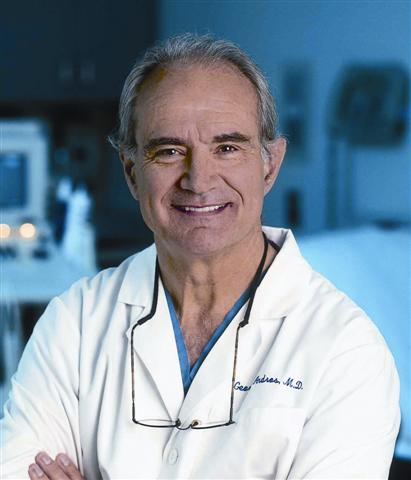User login
Once you’ve read this month’s Veith’s Viewpoint, you will see it doesn’t shy away from topical and highly controversial realities that will come into sharper focus through the national election and for months and years to come. Americans demand, and believe that they are entitled to, health care whether or not they have paid generously into the Medicare health care funding scheme.
And it isn’t just senior citizens but those with ESRD on HD but also those on disability who receive Medicare benefits before age 65. There isn’t enough money to pay for the services and the costs as a percentage of the GDP are expensive and unsustainable. So where do we cut? Who will receive fewer OR MORE services and who will be paid more OR LESS for providing them?
Veith argues that it is the specialists who get the patients well and should not be forced to accept less compensation, especially if the extra money goes to GPs. This is the stuff of inter-specialty conflict. More importantly, because it is part of legislation that has withstood Supreme Court scrutiny, it weaves government regulation tighter into the fabric of medical care. Which decisions in the practice of medicine, its ethics, morals and values, are appropriately promulgated inside the Beltway? To what extent should winners and losers be decided by the federal government and Congress, especially one as fractious and dysfunctional as ours is currently?
There will be no simple answers to the dilemmas that this month’s Veith’s Viewpoint raises but we all need to be engaged in the discussion. Write and tell us what you think. And, of course, feel free to share it with your colleagues – including the GPs.
Dr. Andros is the Medical Editor of Vascular Specialist. He is medical director, Amputation Prevention Center at Valley Presbyterian Hospital andfounding partner, Los Angeles Vascular Specialists, Los Angeles, Calif.
Once you’ve read this month’s Veith’s Viewpoint, you will see it doesn’t shy away from topical and highly controversial realities that will come into sharper focus through the national election and for months and years to come. Americans demand, and believe that they are entitled to, health care whether or not they have paid generously into the Medicare health care funding scheme.
And it isn’t just senior citizens but those with ESRD on HD but also those on disability who receive Medicare benefits before age 65. There isn’t enough money to pay for the services and the costs as a percentage of the GDP are expensive and unsustainable. So where do we cut? Who will receive fewer OR MORE services and who will be paid more OR LESS for providing them?
Veith argues that it is the specialists who get the patients well and should not be forced to accept less compensation, especially if the extra money goes to GPs. This is the stuff of inter-specialty conflict. More importantly, because it is part of legislation that has withstood Supreme Court scrutiny, it weaves government regulation tighter into the fabric of medical care. Which decisions in the practice of medicine, its ethics, morals and values, are appropriately promulgated inside the Beltway? To what extent should winners and losers be decided by the federal government and Congress, especially one as fractious and dysfunctional as ours is currently?
There will be no simple answers to the dilemmas that this month’s Veith’s Viewpoint raises but we all need to be engaged in the discussion. Write and tell us what you think. And, of course, feel free to share it with your colleagues – including the GPs.
Dr. Andros is the Medical Editor of Vascular Specialist. He is medical director, Amputation Prevention Center at Valley Presbyterian Hospital andfounding partner, Los Angeles Vascular Specialists, Los Angeles, Calif.
Once you’ve read this month’s Veith’s Viewpoint, you will see it doesn’t shy away from topical and highly controversial realities that will come into sharper focus through the national election and for months and years to come. Americans demand, and believe that they are entitled to, health care whether or not they have paid generously into the Medicare health care funding scheme.
And it isn’t just senior citizens but those with ESRD on HD but also those on disability who receive Medicare benefits before age 65. There isn’t enough money to pay for the services and the costs as a percentage of the GDP are expensive and unsustainable. So where do we cut? Who will receive fewer OR MORE services and who will be paid more OR LESS for providing them?
Veith argues that it is the specialists who get the patients well and should not be forced to accept less compensation, especially if the extra money goes to GPs. This is the stuff of inter-specialty conflict. More importantly, because it is part of legislation that has withstood Supreme Court scrutiny, it weaves government regulation tighter into the fabric of medical care. Which decisions in the practice of medicine, its ethics, morals and values, are appropriately promulgated inside the Beltway? To what extent should winners and losers be decided by the federal government and Congress, especially one as fractious and dysfunctional as ours is currently?
There will be no simple answers to the dilemmas that this month’s Veith’s Viewpoint raises but we all need to be engaged in the discussion. Write and tell us what you think. And, of course, feel free to share it with your colleagues – including the GPs.
Dr. Andros is the Medical Editor of Vascular Specialist. He is medical director, Amputation Prevention Center at Valley Presbyterian Hospital andfounding partner, Los Angeles Vascular Specialists, Los Angeles, Calif.

